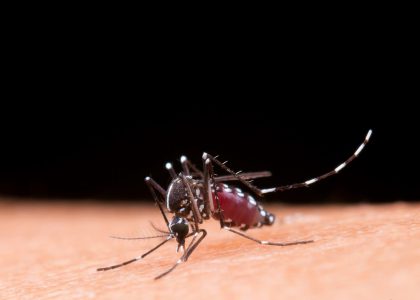The importance of adherence to the vaccination schedule for children 7 years of age and younger Ensuring the health and well-being of our children is a priority for both parents and health care providers. One of the most effective ways to protect children from preventable diseases is vaccination. Vaccines are the main tool for preventing the spread of infectious diseases and improving the general health of the population.
It is important that parents understand the importance of following the vaccination schedule for children 7 years and younger. The vaccination program for children 7 years and younger is carefully planned by health experts, taking into account various factors such as age, development of the immune system and the prevalence of certain diseases. Adherence to this schedule is critical to maximizing the protective benefits of any vaccine. Babies and young children have vulnerable immune systems that are still developing.
Vaccines help stimulate the immune system to recognize and fight certain infections. By following the recommended vaccination schedule, parents can ensure that their child and their immune system are properly prepared to protect against many diseases. The vaccination program for children 7 years of age and younger usually begins shortly after birth and continues throughout early childhood. At a certain age, several vaccines are given to protect against diseases such as measles, mumps, rubella, polio, hepatitis and many others. Skipping or delaying vaccinations can put your child at risk for these potentially serious diseases.
In addition, adherence to the recommended vaccination schedule allows effective prevention of disease in the community. Vaccines not only protect the recipient, but also create herd immunity. Herd immunity occurs when a significant portion of the population is vaccinated, which prevents further spread of the disease. By ensuring that children are vaccinated on time, we are working together to create a safer environment for everyone. It is important to note that vaccines are extensively tested for safety and efficacy by regulatory agencies before they are approved for use. The recommended vaccination schedule for children 7 years of age and younger is carefully reviewed and updated as new scientific evidence becomes available.
Below is an overview of the vaccine schedule for children 7 years and younger:
- From birth to 2 months: Several vaccines are recommended during this period, including the hepatitis B vaccine, which is crucial to prevent liver diseases. In addition, vaccines are given against diseases such as diphtheria, tetanus, pertussis (DTaP), Haemophilus influenzae type b (Hib), pneumococcal conjugate vaccine (PCV) and poliomyelitis (IPV).
- 4 months: At this age, children receive a second dose of DTaP, Hib, PCV, IPV and rotavirus (RV) vaccines.
- 6 months: Third doses of DTaP, Hib, PCV, IPV and RV vaccines are given during this time. In addition, children receive the flu vaccine as a seasonal flu vaccine.
- 12-15 months: At this stage, the first MMR vaccine (measles, mumps and rubella vaccine), varicella vaccine, Hib and PCV boosters are given.
- 2-3 years: annual flu vaccine is recommended for children in this age group.
- 4-6 years: Children receive a second MMR vaccine and a booster vaccination against chickenpox to ensure long-term protection against measles, mumps, rubella and chickenpox. In addition, vaccines against DTaP, IPV and flu vaccines are given.
Although some parents may be concerned about the safety of vaccines, many studies have consistently shown that vaccines are safe and have few side effects. The risks associated with vaccine-preventable diseases are significantly greater than the potential side effects of vaccination. In short, adherence to the recommended vaccination schedule for children age 7 and younger is paramount to protecting them against many preventable diseases.
Vaccines play a key role in strengthening their immune systems and ensuring their well-being. In addition, we promote the overall health of our communities by following a vaccination program. It is very important that parents consult health professionals and stay up to date on the latest vaccine recommendations. Let’s put the health and safety of our children first by making sure they get the recommended vaccines on time.














